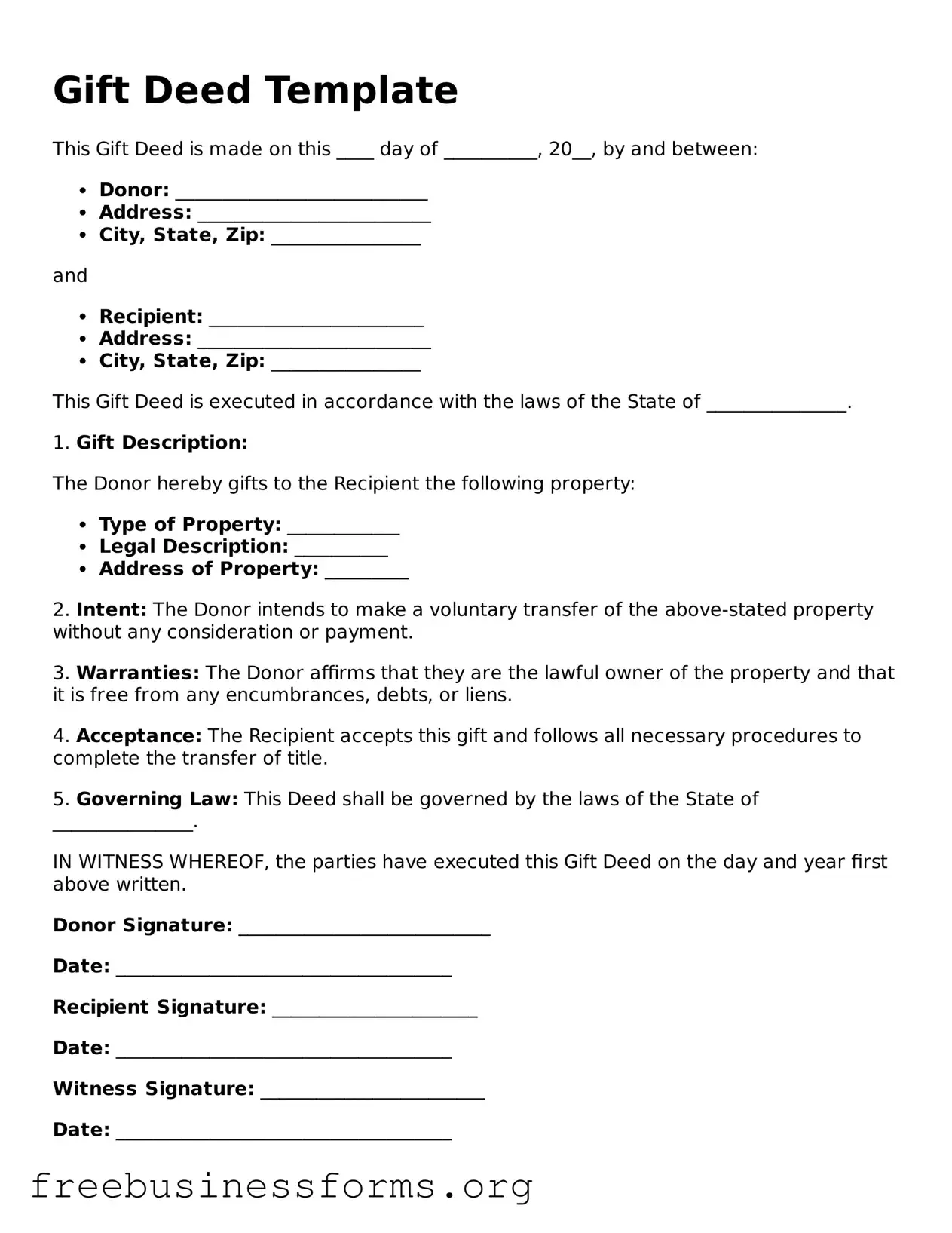Official Gift Deed Form
A Gift Deed is a legal document that allows one person to transfer ownership of property or assets to another person without any exchange of money. This form serves as a formal record of the gift, ensuring that both parties understand the terms and conditions of the transfer. Understanding the nuances of a Gift Deed can help individuals navigate the process smoothly and ensure that their intentions are clearly documented.
Open Form Here

Official Gift Deed Form
Open Form Here

Open Form Here
or
↓ PDF File
Quickly complete this form online
Complete your Gift Deed online quickly — edit, save, download.